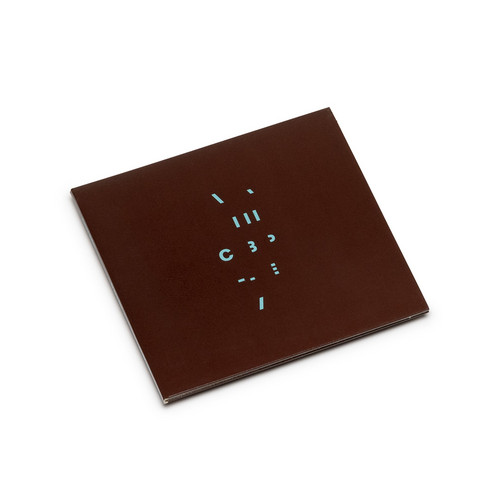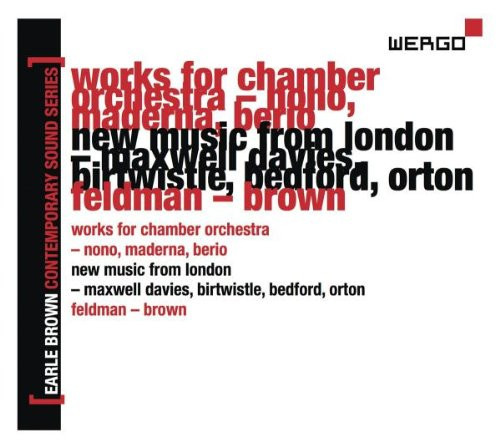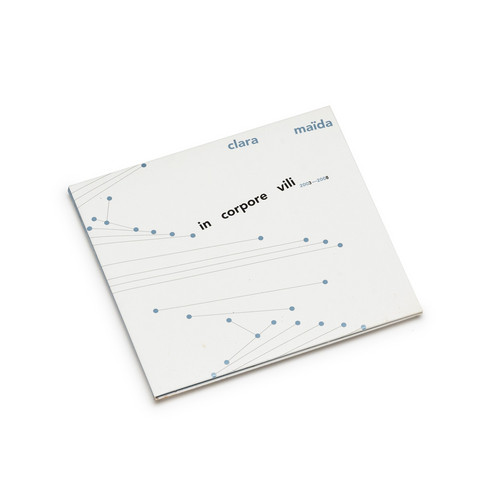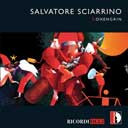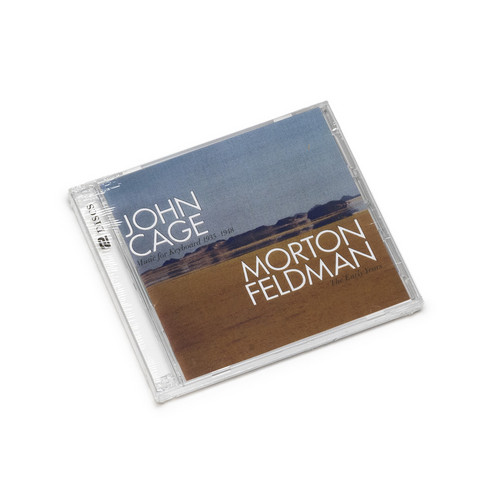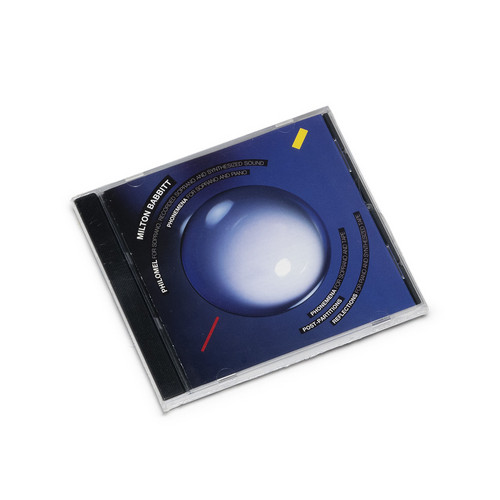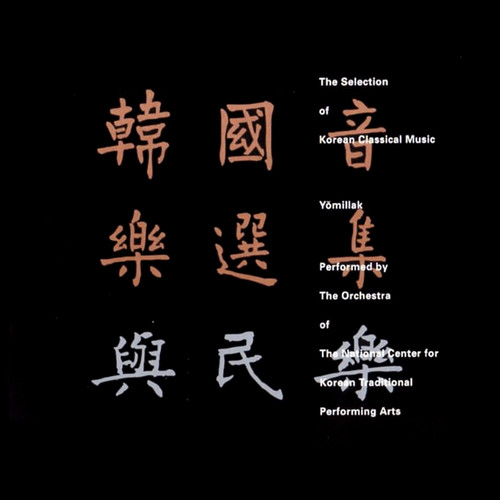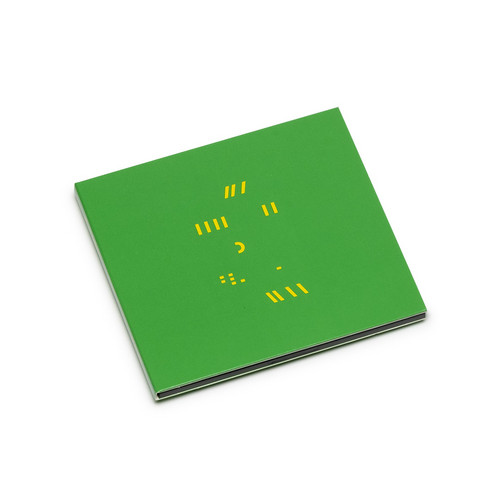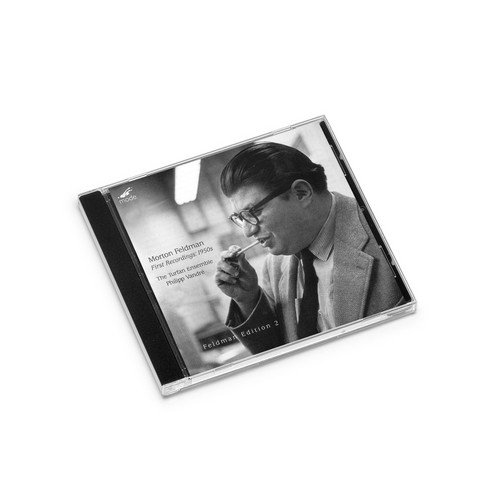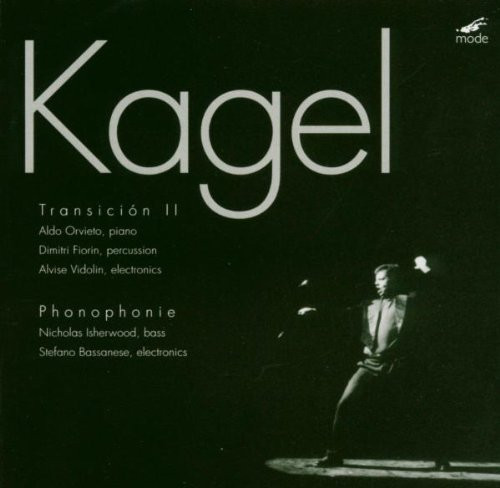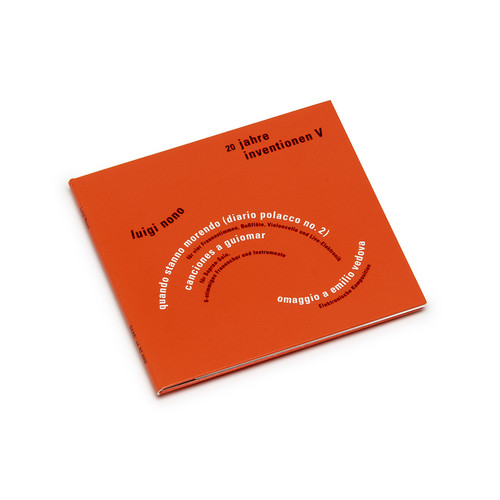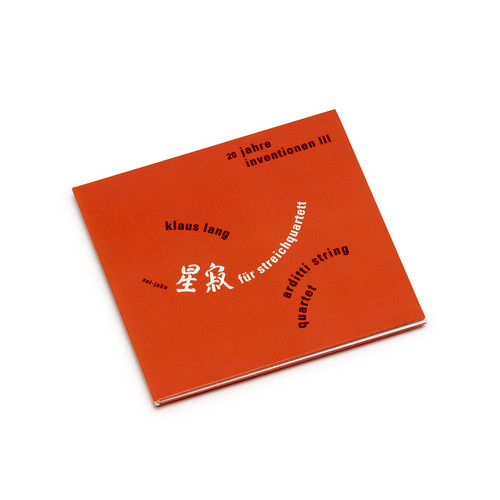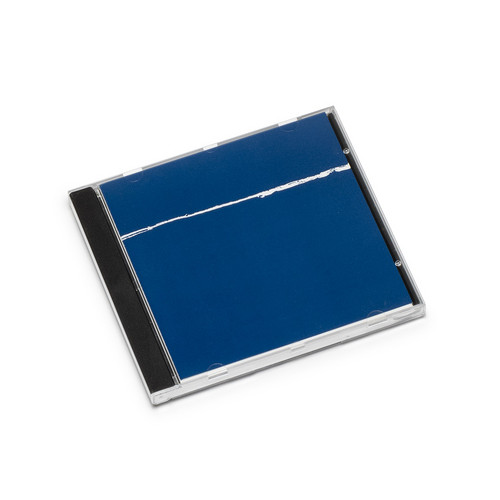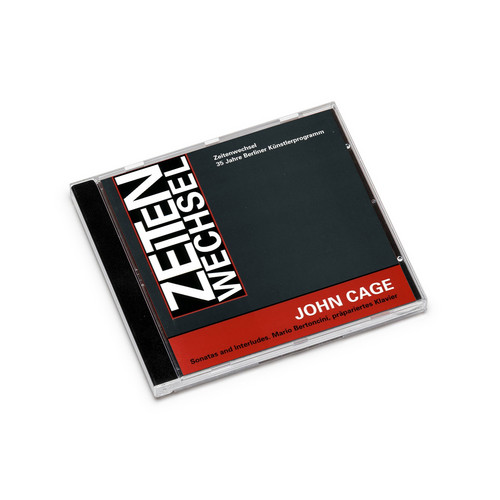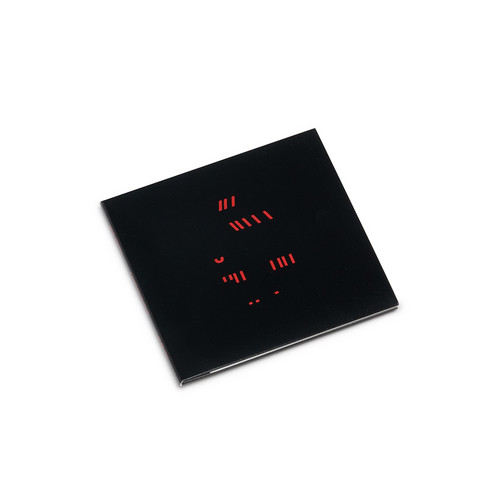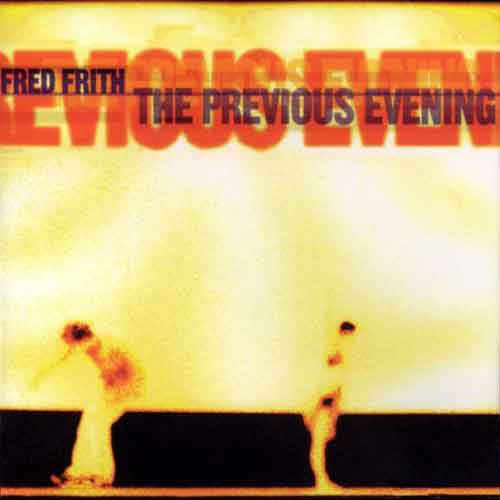Indra's Net
A hybrid acoustic tape piece of solo violin on four track tape, and a work for four violins, composed in 1974 by Harley Gaber
Earle Brown Contemporary Sound Series Vol. 2
3-CD Set. Recorded between 1960 and 1973, the original eighteen LPs that comprise Earle Brown's legendary Contemporary Sound Series have been highly sought after in the secondary market since 1978 when they were discontinued. These rare and historically important recordings of international avant-garde music have been carefully digitized and remastered by the Earle Brown Music Foundation. Volume two includes music by Nono (Polifonica-Monodia-Ritmica), Bruno Maderna (Serenata No. 2), Luciano Ber…
In Corpore Vili
Just arrived, this is the newest edition RZ release focused on a radical electronic (+ Ensemble) music by Clara Maida "During the first years of my compositional research, my goal was to mark out, in my music, the flux of the psychic energy at work in the unconscious and its underlying structure. At the time, I was going through an analytical process favouring access to this unconscious activity, and my readings in the field of psychoanalysis were helping me in the effort to elaborate a musical …
Lohengrin
2008 release ** Lohengrin, Salvatore Sciarrino's "azione invisibile", is both a gloss on Wagner's opera and a sly debunking of it. It was conceived by its composer as an opera with action invisible, for one singer/actress who assumes all the charactersn Sciarrino's monodrama, based on one of Jules Laforgue's Moralités Légendaires, episodes from the story are viewed through the distinctly jaundiced eyes and ears of Elsa, the woman Lohengrin marries and then deserts. A single voice narrates and ta…
Music For Keyboard 1935-1948 / The Early Years
This double-CD set combines two of the key titles of Columbia Records's
legendary "Music of Our Time" series curated by David Behrman. Jeanne
Kirstein's recording of Cage's early keyboard works remains a touchstone
of Cagean interpretation notwithstanding the passage of time. Christian
Wolff recalls, "I remember Cage saying that Jeanne Kirstein's playing
caught the spirit in which the pieces were written at the time he wrote
them-a kind of simple excitement and enthusiasm (also, surely, ou…
Philomel
Compositions performed by Bethany Beardslee and Lynne Weber (sopranos), Jerry Kudern and Robert Miller (pianos). The four works on this recording span a period of a decade and are among the best of Milton Babbitt’s output, tape and otherwise. Philomel, for soprano, recorded soprano, and synthesized sound, is one of the undisputed classics of electroacoustic music and this is its definitive recording. Two versions of Phonemena —one for soprano and piano, the other for soprano and tape— another vi…
Yomillak - Korean classical music
Selection of Korean classical music, performed by the Orchestra National Center for Korean Traditional Performing Arts. Cast your mind back to the 15th century. That is, of course, difficult if not impossible to do, but the major piece recorded on these CDs, Yomillak, 'Giving the People Joy', provides something of a sonic reference point: it was first performed in 1447. Y'millak is the most extended piece of orchestral court music surviving in Korea, and it has for many centuries been used for r…
Morton Feldman
Beautiful collection of Morton Feldman's earliest, shorter piano works from the early 50s, going through the late 70s
First recordings: 1950s
A remarkable discovery of over 75 minutes of Morton Feldman's music. This disc represents 13 unrecorded early works spanning 1950 to 1953, many previously unpublished. Highlights: his only works for magnetic tape, 'Intersection,' realized in 8-channels by Feldman with John Cage and Earle Brown. Considered lost, the work has been restored and presented here for the first time in 40 years. Also: his score for 2 cellos to Hans Namuth's film of Jackson Pollock, presented in its entirety including na…
Transición II. Phonophonie
This disc collects two early, forward looking works by Argentine born Mauricio Kagel, now living in Germany. Both works are constructed in such a way so that no two performances can ever be alike. Transición II was an early exploration of what "live electronics" are now being used to achieve. The score is in individual pages which can be placed in any order by the performers. It works on three levels. LIVE: The pianist performs on the keyboard while a percussionist performs inside the pian…
20 Jahre Inventionen V - live electronic
The live electronics that Nono worked with for the first time in the early 1980?s at the Freiburg Experimental Studio also serves the musical displacement: the music moves away from clear spatial and timbral assignations. Due to electronic processing, the sonic characteristics of both instruments, bass flute and cello, can hardly be recognized. Tones and gestures are lengthened into seeming infinity and move in space
Sei-jaku für Streichquartett
Documentation '20 Years Inventionen', CD III. The string quartet 'sei-jaku' by German composer Klaus Lang, documented on this CD, was performed on 6/30/2002 in the Großer Sendesaal of the SFB Berlin by the Arditti String Quartet during the festival Inventionen 2002.
Trauermusiken
Two compositions by the young Austrian composer/organist Klaus Lang who currently lives in Berlin/Germany. Der Wind und das Meer for viola (Barbara Konrad, viola) The Sea of Despair for String Quartet (Amras Streichquartett)
Sonatas and Interludes
This landmark recording of John Cage’s prepared piano works performed by Mario Bertoncini was recorded back in December 1991. The sonatas are divided into four groups, each divided by the less overtly structured, rhapsodic interlude pieces. Bertoncini sensitivity to the displaced sonic characteristics of the piano is remarkable and suggests a rigorous dedication to Cage’s work.
A Catalogue of Sounds
Jakob Ullmann's music realizes an infinite variety of gradations in all areas of musical formation. That the music of the "catalogue" is nearly always played very softly leads to the ear noticing the smallest differentiations; the listener is put into a state of constant, acute attentiveness. The musical stream is constantly subjected to small irritations, sometimes its flow quickens, sometimes there are brief splashes like those caused by pebbles thrown into water. Performers: Ensemble Oriol Be…
The Previous Evening
Former Henry Cow guitarist Fred Frith pays homage to three giants of contemporary classical music: John Cage, Morton Feldman and Earle Brown. In his own inimitable fashion, Frith has tried to incorporate the chosen composer's own working methods into each of the three pieces that make up The Previous Evening. As he explains in the enclosed booklet regarding his John Cage homage: 'Fragments of text heard in Part 1 were taken at random from Cage's book Silence. Tape editing, the structure of the e…
